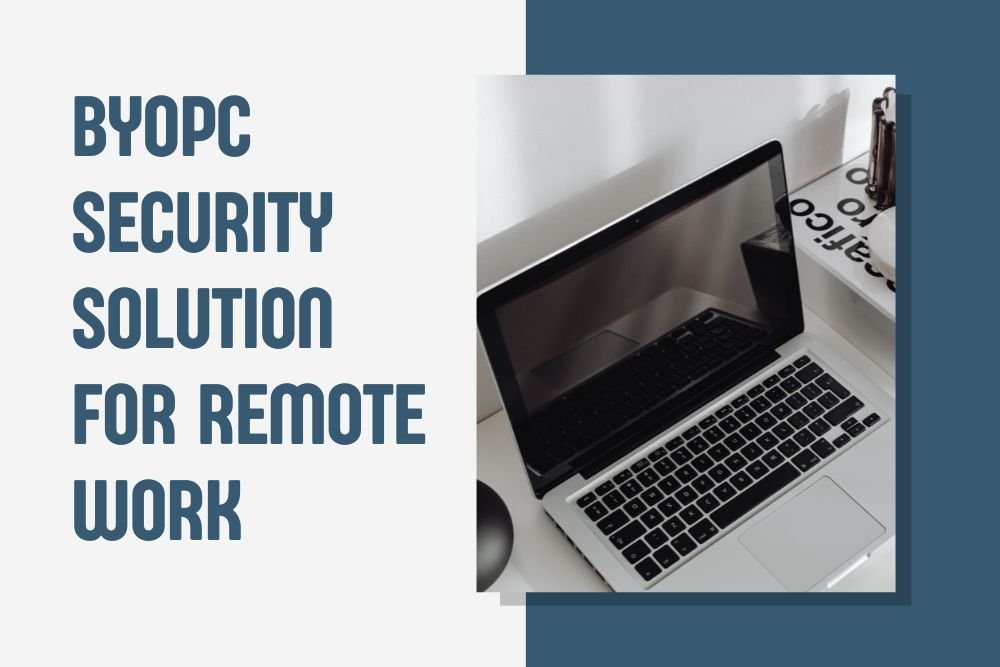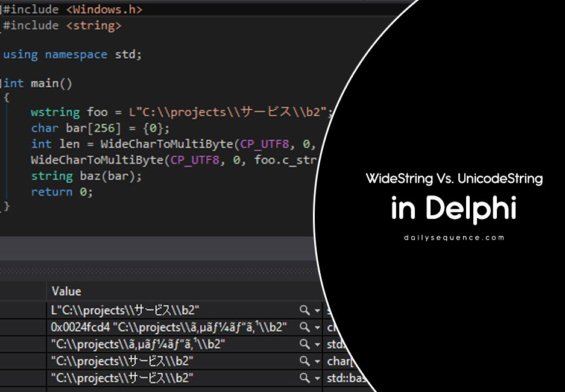As remote work continues to grow, organizations face unique challenges in ensuring the security of their networks and devices. One increasingly popular solution is the BYOPC (Bring Your Own PC) strategy, where employees use their personal computers for work tasks. However, this approach requires strong security measures to protect both corporate and personal data. In this article, we’ll dive deep into the importance of BYOPC security solutions for remote work, how they protect devices, and best practices for keeping information safe.
What Is BYOPC Security?
BYOPC, or Bring Your Own PC, allows employees to use their personal computers for professional tasks. While it offers flexibility and convenience, it opens up potential security vulnerabilities. Unlike company-issued devices that come pre-configured with security software and policies, personal computers may lack the necessary protections against malware, phishing, and data breaches. That’s where BYOPC security solutions come in—they provide safeguards to ensure that employees’ personal devices meet corporate security standards while working remotely.
Why Is BYOPC Security Important?
Remote work inherently increases the risk of cyber threats. Employees are often connected to unsecured home networks, public Wi-Fi, or other non-corporate networks, which can expose sensitive data to hackers. Without a solid security solution in place, personal devices can become the weak link in an organization’s security chain.
Here are some key reasons why BYOPC security is essential:
- Unsecured Devices: Employees may not have proper antivirus or encryption tools on their personal devices.
- Data Privacy: Without encryption, sensitive company data could be at risk.
- Compliance: Many industries require businesses to adhere to strict data protection laws. BYOPC solutions ensure compliance with regulations such as GDPR and HIPAA.
- Phishing Attacks: Personal devices might be more vulnerable to phishing scams, which could lead to data breaches.

Key Components of BYOPC Security Solutions
To effectively safeguard remote work environments, organizations should implement a comprehensive BYOPC security strategy. This strategy involves a combination of software, policies, and employee education to protect personal devices. Here are the critical elements of a BYOPC security solution:
- 1. Endpoint Security Software: Installing endpoint security software is a must for any BYOPC setup. This software acts as the first line of defense against malware, viruses, and unauthorized access. It also ensures that all devices accessing corporate networks are compliant with the organization’s security policies.
- VPN (Virtual Private Network): A VPN creates a secure, encrypted tunnel between the employee’s device and the company network. This is especially important when employees are using public Wi-Fi or other unsecured connections. A VPN ensures that data transmitted between the two points is protected from interception.
- Data Encryption: Encrypting sensitive data on personal devices is essential for preventing unauthorized access. Encryption converts data into a secure format that can only be accessed by individuals with the correct decryption key. This is particularly important for industries dealing with sensitive information, such as finance or healthcare.
- Multi-Factor Authentication (MFA): MFA requires employees to verify their identity using two or more authentication factors (such as a password and a one-time code sent to their phone). This adds an extra layer of security and helps prevent unauthorized access, even if a password is compromised.
- Security Awareness Training: Even with the best technology in place, human error remains a significant security risk. Employees need to be educated about potential threats such as phishing attacks, social engineering, and best practices for maintaining device security. Regular training ensures that workers are aware of current threats and how to avoid them.
Best Practices for Implementing BYOPC Security
When introducing BYOPC security solutions for remote work, companies should follow these best practices to ensure a smooth and secure transition:
- Create Clear BYOPC Policies: Define guidelines for acceptable use of personal devices, including which software must be installed and how devices should connect to corporate networks.
- Require Regular Device Updates: Outdated software can contain vulnerabilities that hackers can exploit. Employees should be required to keep their devices up-to-date with the latest security patches.
- Limit Access to Sensitive Data: Implement role-based access controls so employees only have access to the data necessary for their job function. This minimizes the risk of sensitive information being compromised.
- Regularly Monitor and Audit Device Activity: Use monitoring tools to keep an eye on device activity and ensure that employees are complying with security policies. Regular audits can help identify potential vulnerabilities before they lead to a breach.
Advantages of BYOPC Security Solutions
- Cost Savings: Since employees are using their own devices, companies can save on the cost of purchasing and maintaining corporate hardware.
- Flexibility: Employees can work from anywhere using their own familiar devices.
- Improved Productivity: Employees are often more comfortable and efficient using their personal computers, which can lead to increased productivity.
Potential Challenges
While BYOPC offers many benefits, there are challenges that organizations need to address:
- Device Compatibility: Not all personal devices may be compatible with corporate software and security solutions.
- Data Privacy Concerns: Mixing personal and professional data on the same device can lead to privacy issues, especially if an employee leaves the company.
- IT Support Burden: Providing support for a wide range of personal devices can increase the workload for IT departments.
Conclusion
BYOPC security solutions are essential for organizations that allow employees to use personal devices for work tasks. By implementing strong security practices—such as endpoint protection, VPNs, encryption, and employee training—companies can safeguard their data while reaping the benefits of a flexible remote work environment. Protecting devices and maintaining compliance with regulations are key to a successful BYOPC strategy.





